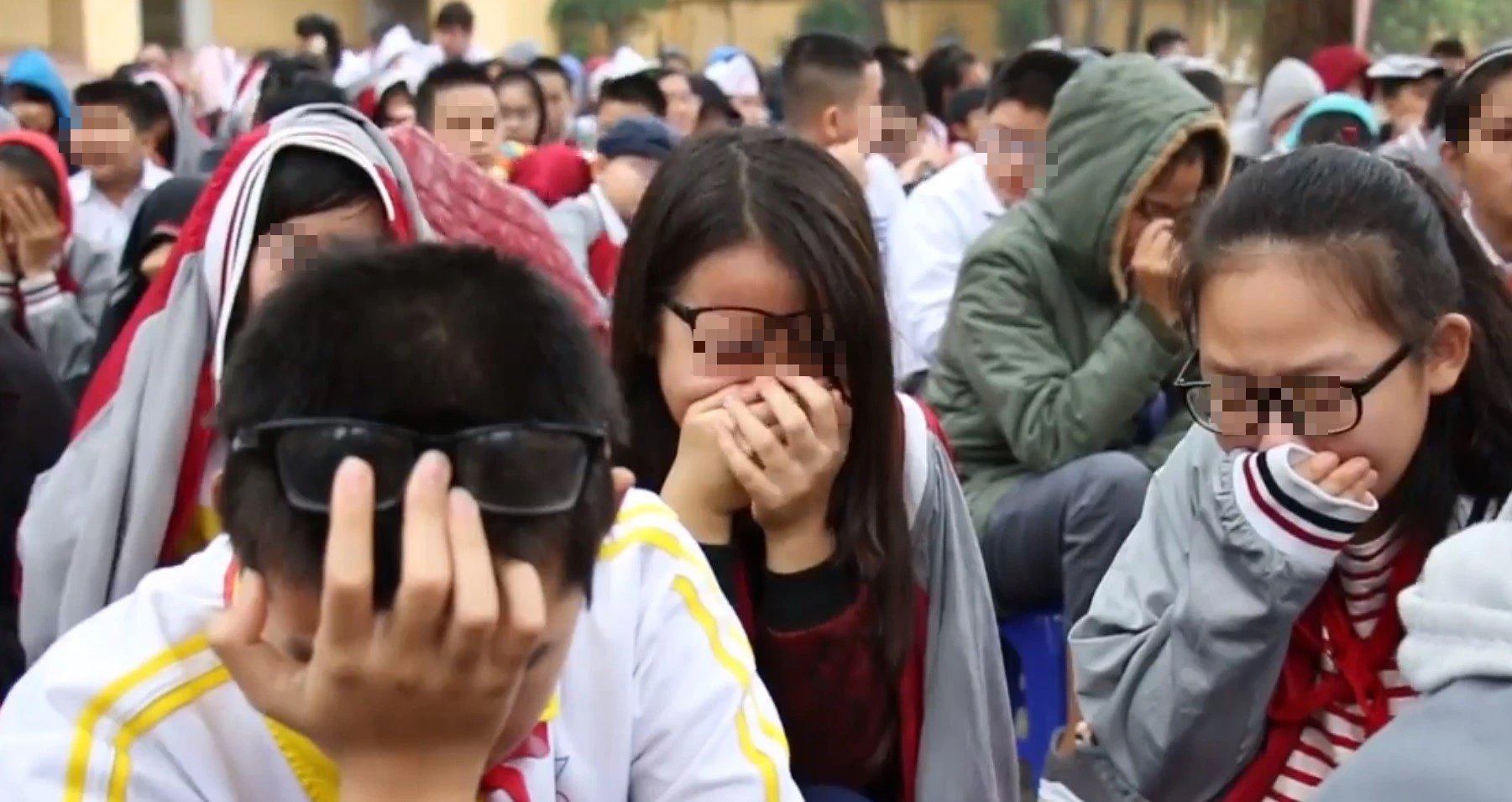Many years ago, there was a movement of speakers going around schools, making students and teachers cry with sentimental stories about family love.
Many schools support this approach because they believe it is an effective method of teaching students ethics and skills. Many people think that the more the speaker moves students, the more tears they shed on topics such as filial piety, love for parents, grandparents, etc., the more successful he is; if he fails to move students, he is considered a failure. Recently, this type of "motif" seems to be returning to schools and causing concern for many people working in the education sector.
Thanh Nien Newspaper reporter talked with Dr. Nguyen Thanh Nam, lecturer at the Military Technical Academy, a long-time activist in the field of culture and education, about this phenomenon.

Dr. Nguyen Thanh Nam
Taking advantage of emotions is anti-educational.
What is your opinion on moral and skills education programs for students by making students "cry as much as possible"?
I believe that sincere emotion before the true values of life is always precious and should be preserved. However, first of all, it is necessary to distinguish it from the impulsive emotions of "being possessed".
Psychologists have studied the phenomenon of "crowd psychology", also known as "herd phenomenon", and the results show us that when in a crowd, people tend to blend into the group and lose their sense of individuality. That makes many people able to perform exciting, unusual behaviors, which they may not do when alone.
When people around express a high emotion towards a phenomenon, that emotion quickly spreads and affects all members of the crowd. Emotional waves spread, respond to each other, combine and resonate like waves on the surface of water. The crowd effect is stronger when the members of the crowd are people with little knowledge and experience, like our students.
Many people have exploited the mechanism of copying the emotions of the crowd to manipulate the emotions and control the behavior of others. The purpose of this can be good or bad, can bring benefits or cause harm, depending on the specific situation and context. However, exploiting emotions is an anti-educational thing.
So, can moral education and life skills programs for students using "emotional manipulation" techniques cause consequences?
Most of the above programs convey positive messages to students, including promoting family affection, educating gratitude and responsibility towards parents. These are important moral values that need to be taught to students, especially in the context of people increasingly distancing themselves from their families due to the influence of technology and modern life.
However, manipulating students' emotions is counter-educational and undermines the value of the message. Many students, after a bout of "acute emotion", feel led and deceived when they wake up, which can lead to negative emotions.
Therefore, it is not advisable to encourage the implementation of "life skills education" programs in the form of making students cry en masse like that in schools.

Hundreds of students at a school shed tears after listening to a speaker talk about the gratitude to parents and teachers.
Making people cry - exploiting emotions doesn't just happen in schools
It seems that the problem you mentioned does not only happen in schools, but also happens quite commonly in today's society, we still see it on social networks?
It seems that in this era, emotions are being inflated. Storms of emotions "storm" the cyberspace day after day, constantly moving from one event to another. If people are emotionally abused too much, they will gradually become insensitive to the true emotional values in life.
On the other hand, for people with emotional problems, if they are constantly manipulated, it will lead to depression and a feeling of despair. If they cannot overcome it, their mental illness will become more and more severe. The increasing number of cases of psychological crisis caused by social networks is proof of that.
In real life, the form of psychological manipulation based on the crowd effect also occurs in many places. We can see it in organizations that take advantage of the form of multi-level marketing to cheat people's money. Instead of "going crazy" with them, we need to warn people about these phenomena so that they know how to prevent risks for themselves.
There is a need for serious and systematic education in schools about emotional intelligence.
So in schools and teaching activities, what do you think is an effective method that teachers and parents can apply to educate students in ethics and skills?
I always believe that the goal of human beings is happiness, happiness is brought by emotions. Although emotions can bring happiness, they can also cause harm, making human life worse. Therefore, a wrong perception of life is extremely dangerous.
One of the hardest things a person has to learn throughout his life is to master his emotions. Emotions are extremely powerful, they are catalysts that produce endless energy, but emotions are blind and need to be guided by knowledge and wisdom.
Therefore, emotional intelligence is the most important element in the structure of human intelligence, it greatly determines the success of each individual. Emotional intelligence is not the ability to understand one's own emotions and those of others, but the ability to control emotions so that they help and benefit oneself, not to let them go against oneself, harm oneself and harm society. Therefore, children need to be seriously and systematically educated in school about emotional intelligence, starting with educating students about empathy from the time they are in grade 1.
In particular, children also need to be educated about gratitude. Gratitude is important because it helps each person identify their position in the value chain. Knowing the scope of influence, the field of action of oneself, from there knowing how to control, knowing how to behave properly. That is the foundation of lasting happiness.
Returning to the issue of educating love and gratitude towards parents, relatives, and family, I think this is one of the three important factors in educating gratitude, including: knowing what you receive from whom; knowing what you can contribute; knowing who you bring benefits to. All three of these "knowings" can only be formed in the process of studying and working. A person who is lazy to study and work cannot be grateful, no matter how much he cries.
Thank you!
Source: https://thanhnien.vn/dung-nuoc-mat-giao-duc-tre-em-lam-phat-cam-xuc-185250123172510346.htm


























































Comment (0)